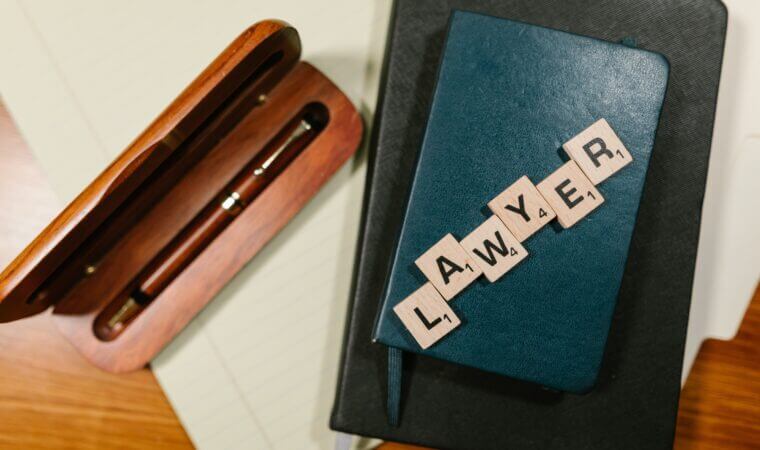A barrier that inhibits countless injury victims from reaching out to a personal injury lawyer is the unknown. There is so much unknown about the process – that can be intimidating. At Gelb & Gelb, we welcome questions. This blog post aims to provide some basic information that will give you the framework to confront your legal challenges.
List of Terms and Phrases
What Does Negligence Mean?
Negligence is one of the most common causes of action in personal injury law. A synonym for negligence is “carelessness”. In a sentence, it is a breach of a duty owed by the defendant (carelessness), which causes damages to the plaintiff. The most common example of negligence is a car accident. It was not intentional that the other driver collided with you; it was an accident. Nevertheless, the negligent tortfeasor is liable for your injuries if you can prove he owed a duty to you, he breached that duty, and that breach caused your injuries.
What Does Plaintiff Mean?
A plaintiff is the victim in a personal injury case. The symbol for a plaintiff in a personal injury case is “π” or pi. This is shorthand notetaking, but you may notice it when you step into a courtroom or review notes with your personal injury attorney.
What Does Contingency Fee Mean?
This term is well understood in personal injury law. It is understood to mean that we only charge our client a legal fee if we win your case. In other words, our fee depends on prevailing on your case, either by settlement pretrial or judgment at trial. A contingent fee structure benefits injury victims who otherwise could not afford an attorney. Moreover, it allows for free consultations, because you do not pay the lawyer by the hour, only if you win your case.
The typical contingent fee structure charges one-third of the ultimate recovery if your case settles before trial. Remember, roughly 97% of personal injury cases settle before trial, so this is the most likely fee you will be charged, but of course, there is no guarantee. If your attorney must litigate your case, the fee typically increases to 40%.
What Are Damages?
Damages in a personal injury case can be split into economic and noneconomic damages. The most common and valuable economic damages are your medical expenses and lost wages. Generally, these are fully compensable. However, they are subject to a few caveats that your injury attorney should know about. You also are entitled to compensation for property damage, such as golf clubs in the trunk of your vehicle that got crushed due to a car accident.
Then, you have noneconomic damages. This represents your pain and suffering, a term defined below.
Third, you may be entitled to punitive damages. The availability of this form of damages depends on the rules of the jurisdiction. Punitive damages are to punish and deter; they act as a civil fine. In some states, they can be won for recklessness by the defendant. In other states, there must be intentional conduct or evil motive. Some states do not allow for punitive damages at all.
What is Pain and Suffering?
This is a significant component of your noneconomic damages. When you go into a nightclub and are injured, perhaps your nose is broken, or your ribs are, you are entitled to damages for your pain. If you break your ribs, you are going to have difficulty breathing for months due to the injury. Beyond the pain, like with a broken nose, maybe your face is disfigured. In this case, you are entitled to pain and suffering damages for being physically impaired.
What is a Statute of Limitations?
A statute of limitations is a time limitation that specifies how long you have to file suit for your injury with a court. The date the statute of limitations begins is generally when your injury occurs. However, the statute may be tolled in some instances, like mesothelioma, where you do not discover the injury until later.
What is a Settlement?
When you are injured due to someone else’s negligent or intentional conduct, you have a viable personal injury case. This provides you with the right to sue the defendant in court. You give up that right when you agree to a settlement agreement outside court. You sign a contract that releases the defendant of liability. This means you can no longer sue the defendant in court. In consideration of this release, you receive a monetary award. The money you receive is based on your damages and how likely you would prevail in court in proving liability.
Notably, a settlement occurs outside of court. Generally, it happens before we even file suit on your case. However, in some instances, after filing suit, the defense realizes its case is weaker than it once thought and folds just before. Thus, a settlement can be contrasted with a judgment you receive when you win at trial.
What is a Tort?
A tort is a civil wrong that results in legal liability. A tort is the basis for a personal injury case. Examples of tort are assault, battery, trespass, defamation, conversion, trespass to chattel, private nuisance, tortious interference, and many more.
What is a Class Action?
This is typically not applicable to the average car accident case. While you can have multiple plaintiffs in a car accident case, a court will not certify the plaintiffs as a “class”. A class action is one lawsuit filed by a group with similar claims against a common defendant. A lead plaintiff usually represents the class, but it can also be a small number of individuals. Class actions primarily benefit the court system because they are a more efficient use of resources. It also helps the plaintiff’s attorneys.
On the other hand, it is massively detrimental to the defendant to lose in court to such a large class of people at once. Another party who may be deemed a “loser” throughout the process is the group of victims. In class actions with tens of thousands, they may receive only a fraction of what they truly deserve. But with such large classes, it is only possible for some to have their day in court. Moreover, the defendant may be unable to pay everyone, so compromises must be made.
Contact a Personal Injury Lawyer
Gelb & Gelb has offices in Washington, D.C., and Maryland. We handle car accident cases, truck accidents, motorcycle accidents, pedestrian accidents, wrongful deaths, nightclub injuries, and many more. You can call us today for a free consultation.














